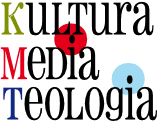
Uniwersytet Kardynała Stefana Wyszyńskiego
w Warszawie
ul. Dewajtis 5
01-815 Warszawa
kmt.uksw.edu.pl
kmt.uksw@gmail.com
ISSN 2081-8971
DOI 10.21697/kmt
Strona archiwalna
Na tej stronie znajdują się numery archiwalne kwartalnika od 1 (2010) do 53 (2023). Począwszy od numeru 54 kwartalnik znajduje się pod tym adresem.
Słowa kluczowe: Media wizualne Rosja Wydarzenie medialne edukacja medialna estetyka estetyzacja intencja komunikacyjna komunikacja kultura kultura wizualna medioznawstwo obraz olimpiada teatr tożsamość wspólnota
Katarzyna Flader-Rzeszowska,
The Aesthetics of Dream and Fairly Tale at the Service of a New Russia Founding Myth. The Opening Ceremony of Sochi Olympics 2014
Źródło: Katarzyna Flader-Rzeszowska, The Aesthetics of Dream and Fairly Tale at the Service of a New Russia Founding Myth. The Opening Ceremony of Sochi Olympics 2014, "Kultura - Media - Teologia", 2014( 17) nr 2, s. 9-21.
The article is dedicated to decoding signs and symbols that were included in the artistic performance at the opening ceremony. The author starts with rendering a definition of a fairy tale and with the terms and conclusions proposed by Bruno Bettelheim, in the Konstantin Ernst's show, the author unveils elements of a fairy-tale aesthetics: theme, delivery, protagonists, objects, and the aim. Also, the artistic performance bears many features of the poetics and language of a dream, which correspond with the works of Erich Fromm dedicated to this topic. The aesthetics of a dream and a fairy tale used in the show are utilized, as the author maintains, to create a founding myth of "new Russia" under the governance of Vladimir Putin. Subjectively selected elements from history, use of symbols, music, historic and literary figures, pieces of art, colors - all of these were the ingredients of the base of Russia's founding myth, a state reborn after the demise of the Soviet Union. The author argues that the show which opened the athletes' Olympic competition was an element to build an image of imperial Russia, a performance in the service of the state propaganda.
O autorach
Katarzyna Flader-Rzeszowska
ORCID: 0000-0002-4110-9788
Informacje
- CALL FOR PAPERS
- Za publikację w KMT 40 punktów
- Nowy podręcznik: Standardy profesjonalnego public relations
- Zmarła prof. dr hab. Anna Zeidler-Janiszewska
- Zmarł ks. profesor Tadeusz Zasępa
- Jesteśmy indeksowani przez CEJSH
- KMT na ICI Journals Master List 2014
- Kwartalnik "Kultura-Media-Teologia" indeksowany w ERIH PLUS!
- Jak zwiększyć liczbę cytowań – darmowy świetny poradnik!
- Zmarł ks. prof. dr hab. Antoni Lewek
Numery
- KMT53: Literatura - Media - Język
- KMT52: W kręgu zagadnień dziennikarskich
- KMT51: Liturgia w świecie wirtualnym
- KMT50: W kręgu zagadnień teologii, komunikowania i kultury medialnej
- KMT49: Komunikowanie i media
- KMT48: Współczesne paradygmaty komunikacji społecznej
- KMT47: We celebrate our 10th anniversary
- KMT46: W kręgu zagadnień polityki, komunikowania i mediów
- KMT45: Mądrość i komunikowanie we współczesności
- KMT44: Poszukiwanie dobra, prawdy i piękna
- KMT43: Konteksty tożsamości
- KMT42: Tożsamość kulturowa
- KMT41: Media w pandemii
- KMT40: Komunikacja i edukacja
- KMT39: Komunikacja w mediach, kulturze i teologii
- KMT38: Formy komunikacji
- KMT37: Wizerunek w mediach
- KMT36: Wartości w Sieci
- KMT35: Szczęście - koncepcje i wizualizacje
- KMT34: Szczęście - koncepcje i symbole
- KMT33: Kultura i media: przeobrażenia
- KMT32: Obrazy i symulakry
- KMT31: Uciekające Sacrum
- KMT30: Public relations w instytucjach non-profit
- KMT29: Hejt i trolling w Sieci
- KMT28: Media, rytuały i styl życia
- KMT27: Dyskursy interdycyplinarne
- KMT26: Absolut (nie)obecny
- KMT25: Hejting i trolling w Internecie
- KMT24: Komunikacja społeczno-kulturowa: między dialogiem a socjotechniką
- KMT23: Duchowość zakonna
- KMT22: Oblicza kina
- KMT21: Media, relacje, komunikacja
- KMT20: Teologia mediów
- KMT19: Edyta Stein - święta i feministka?
- KMT18: Reklama, marketing i prawo
- KMT17: Prawda czasu, prawda ekranu
- KMT16: Kultura i komunikacja
- KMT15: Media i edukacja
- KMT14: Dyskursy interdyscyplinarne
- KMT13: Manipulacja w mediach
- KMT12: Komunikacja na Soborze
- KMT11: Media wobec sacrum
- KMT10: Religia i media
- KMT9: Medialne artefakty
- KMT8: Przestrzenie kultury
- KMT7: Tożsamość i jej fundamenty
- KMT6: Media, kultura, pieniądze i...
- KMT5: Prawda w mediach?
- KMT4: Supermarket kultury
- KMT3: Medialna maskarada
- KMT2: Ks. prof. Antoni Lewek (1940-2010) - życie i dzieło
- KMT1: Progi (po)nowoczesności
Linki
- Uniwersytet Kardynała Stefana Wyszyńskiego w Warszawie
- Wydział Teologiczny UKSW
- Instytut Edukacji Medialnej i Dziennikarstwa
Inne informacje
Używamy plików cookies do mierzenia ruchu na stronie. Więcej na ten temat...